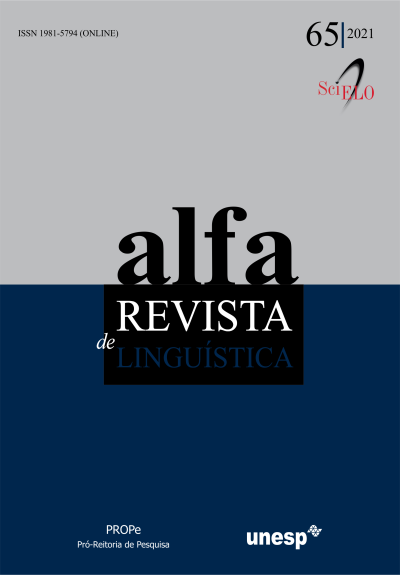Intercomunicação do português coloquial e/ou não padrão e do francês padrão em aula de francês língua estrangeira
DOI:
https://doi.org/10.1590/1981-5794-e13740Palavras-chave:
didática integrada, português língua materna, francês língua estrangeira, francês padrão, português coloquial e/ou não padrãoResumo
Neste artigo, relacionam-se aspectos em variação no português àqueles cristalizados pela gramática no francês, com o objetivo de se estabelecerem intercomunicações entre produções que se assemelham no português coloquial e/ou não padrão e no francês padrão, partindo-se da hipótese segundo a qual atividades intercomunicativas de explicitação, entre tais particularidades, nas duas línguas, são capazes de gerar melhor proficiência na LE. Essa hipótese consubstancia-se em trabalhos como, por exemplo, os de Miranda de Paulo (2017), Candelier (2016) e Bagno (1999). A metodologia consiste em aulas expositivas e dialogadas, cujo foco incide em estimular os alunos a contrastarem e a inter-relacionarem atividades que contextualizem palavras ou expressões no francês padrão que se organizam de maneira semelhante à variação no português. Os resultados mostram que os sujeitos, além de terem contrastado as duas variedades, nas línguas em contato no estudo, também transpuseram estruturas de uma variedade a outra, adequando-as ao padrão do francês.
Downloads
Downloads
Publicado
Como Citar
Edição
Seção
Licença
Os manuscritos aceitos e publicados são de propriedade da Alfa: Revista de Linguística. É vedada a submissão integral ou parcial do manuscrito a qualquer outro periódico. A responsabilidade do conteúdo dos artigos é exclusiva dos autores. É vedada a tradução para outro idioma sem a autorização escrita do Editor ouvida a Comissão Editorial.

